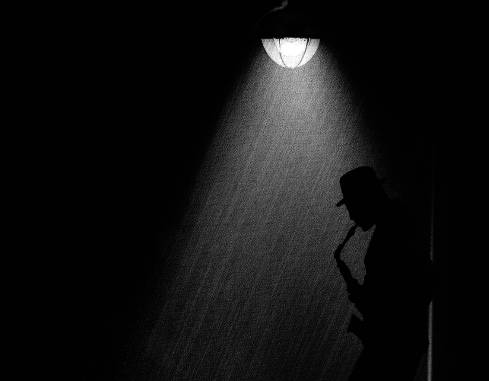
Theo Czuk doesn’t limit himself and follows his muse wherever it may lead him. He’s a talented musician and songwriter, a poet, and a novelist as well. Such a broad based application of one’s talents is rare in any era but Czuk demonstrates clear skill for each form that helps him stand out as one of the more talented literary figures active in the music world today. His novel The Black Bottom: The Measure of Man provides ample evidence of those skills. The book is historical fiction, a period piece, set in the rough and rumble world of late 1920’s Detroit before Wall Street crashed and while Prohibition is still the law of the land. Czuk spares himself few if any pains in capturing the Motor City of that bygone era.
The story revolves around Kaleb Kierka, a first generation American born in 1900 and no stranger to the teeming melting pot of diversity defining the city during that era. He is a charter member of The Purple Gang, a Jewish organized crime outfit rooted in historical fact. He has broken away from that life, however, and now owns a speakeasy straddling the invisible border between the euphemistically named Paradise Valley neighborhood and The Black Bottom, both enclaves impoverished and disenfranchised minorities call home. The novel opens with Kierka recovering from a monumental beating and struggling with amnesia resulting from the attack. The hospital releases him and he attempts to piece together his shattered memories so he can, hopefully, resume his life as before and discover who tried to kill him.
AMAZON: www.amazon.com/BLACK-BOTTOM-Measure-Man-ebook/dp/B07VRB3HG5
It isn’t a whodunit per se, though Czuk generates a respectable amount of suspense through Kierka’s attempts to identify who wants him dead and out of the way. The book is much more of a character study, primarily focused on Kierka and a few other select players, and depiction of the Detroit of that era than it is any sort of mystery. It is, likewise, a loving paean to music, jazz in particular, and its unique effect on the characters and the milieu they inhabit. If you didn’t know Czuk is a musician, the way he writes about music clearly shows it. His writing about music is among the novel’s highlights.
His sense of place is another highlight. He brings the Detroit of 1927 to vivid life, proving time and again he’s researched his subject in great depth, and brings descriptive powers to bear that bring readers into his authorial vision. Action is another strong suit. Death comes in grim and horrifying ways in The Black Bottom and Czuk’s steadfast refusal to romanticize its violence gives the novel a raw-boned jolt that’s impossible to ignore. Czuk’s characters inhabit a violent world and he has no compunction about depicting it in hyper-realistic detail.
It concludes on a downbeat note, but readers will not feel like they are drowning in despair. The conclusion seems inevitable and unforced. These are hard-bitten characters living on the world’s margins and Czuk portrays their trajectories in consistent and believable fashion. There’s much to recommend this book and it has the potential to appeal to more than purveyors of noir or hard-boiled crime fiction; there’s real poetry present on many of its page and its artistry is unquestionable.
Clay Burton
